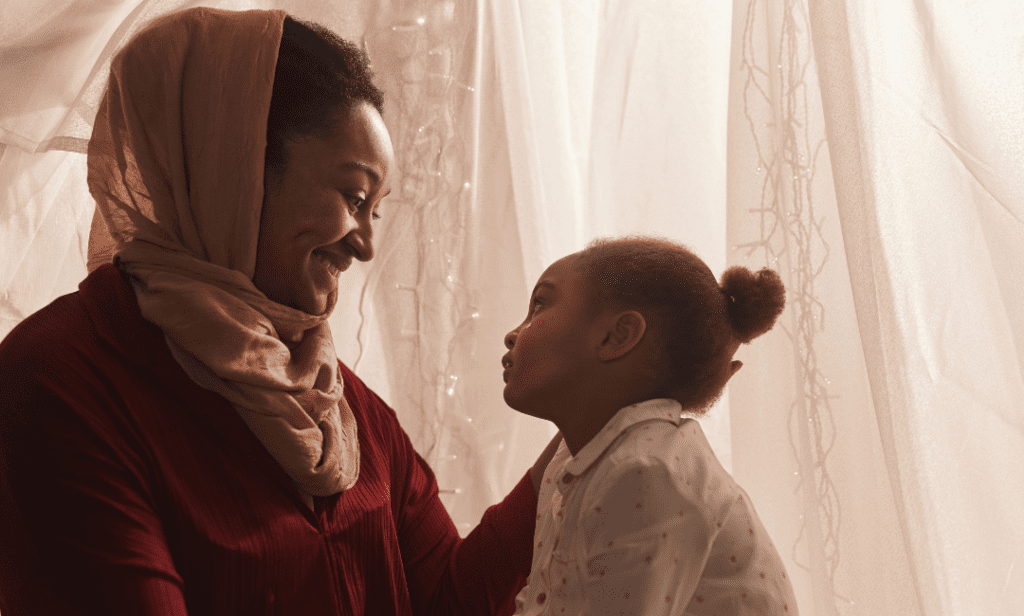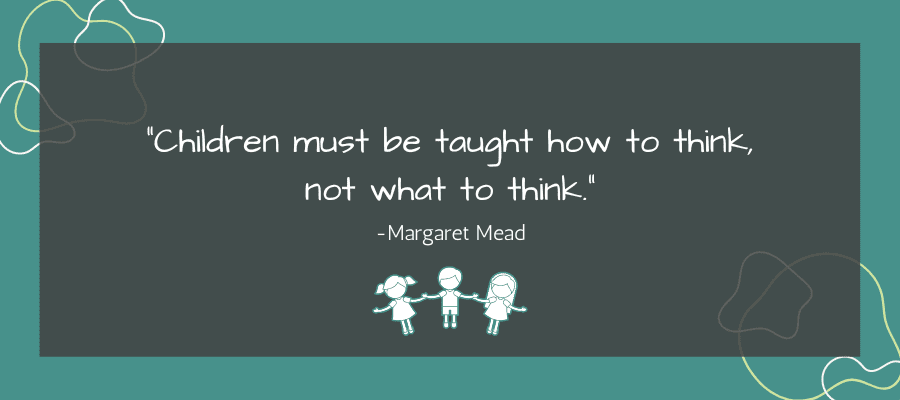
11 tips on how parents can provide trafficking safety for their children
Parents care about their children’s safety because it is a fundamental part of their role as caregivers and because they love their children. The bond between parents and their children is one of the strongest and most meaningful relationships that exists in human society which is why they feel a strong sense of duty to provide for and protect their children.
This is why teaching children about the dangers of human trafficking is a vital component towards their overall safety awareness.
Human is a crime in which one individual is exploited by another for financial benefit and it a growing problem around the world, and children are often the most vulnerable targets. According to the Global Report on Trafficking in Persons, children account for 30% of all human trafficking victims, and girls are disproportionately affected. Human trafficking occurs when traffickers use force, deception, or compulsion to control other individuals for the goal of participating in commercial sex or compelling them to perform work or services against their will.
At Global Orphan Prevention, we are committed to preventing the trafficking of vulnerable children, particularly stopping orphanage trafficking and sex trafficking. We believe that education and awareness are key to protecting children from traffickers. This is why teaching children about the dangers of human trafficking is a vital component towards their overall safety awareness. Human is a crime in which one individual is exploited by another for financial benefit and it a growing problem around the world, and children are often the most vulnerable targets. According to the Global Report on Trafficking in Persons, children account for 30% of all human trafficking victims, and girls are disproportionately affected. Human trafficking occurs when traffickers use force, deception, or compulsion to control other individuals for the goal of participating in commercial sex or compelling them to perform work or services against their will. At Global Orphan Prevention, we are committed to preventing the trafficking of vulnerable children, particularly stopping orphanage trafficking and sex trafficking. We believe that education and awareness are key to protecting children from traffickers.
This is why teaching children about the dangers of human trafficking is a vital component towards their overall safety awareness.
Human is a crime in which one individual is exploited by another for financial benefit and it a growing problem around the world, and children are often the most vulnerable targets. According to the Global Report on Trafficking in Persons, children account for 30% of all human trafficking victims, and girls are disproportionately affected. Human trafficking occurs when traffickers use force, deception, or compulsion to control other individuals for the goal of participating in commercial sex or compelling them to perform work or services against their will.
At Global Orphan Prevention, we are committed to preventing the trafficking of vulnerable children, particularly stopping orphanage trafficking and sex trafficking. We believe that education and awareness are key to protecting children from traffickers. This is why teaching children about the dangers of human trafficking is a vital component towards their overall safety awareness. Human is a crime in which one individual is exploited by another for financial benefit and it a growing problem around the world, and children are often the most vulnerable targets. According to the Global Report on Trafficking in Persons, children account for 30% of all human trafficking victims, and girls are disproportionately affected. Human trafficking occurs when traffickers use force, deception, or compulsion to control other individuals for the goal of participating in commercial sex or compelling them to perform work or services against their will. At Global Orphan Prevention, we are committed to preventing the trafficking of vulnerable children, particularly stopping orphanage trafficking and sex trafficking. We believe that education and awareness are key to protecting children from traffickers.

1. Educate Your Children
The first step in preventing trafficking is to educate your children about the dangers of strangers and online predators. Teach them to never accept gifts or rides from strangers and to never share personal information online. Make sure your children understand that they can come to you if they ever feel uncomfortable or unsafe.
Children should be taught that they do not have to be polite to strangers or adults they do not know. This can be a difficult message for children to internalize, especially when they are taught to be polite and respectful to adults. It is important to teach children that their safety and well-being is more important than being polite to a stranger. Encourage children to trust their instincts and to listen to their gut feelings.
Children who are trafficked may be forced to drop out of school or work in exploitative conditions, which can limit their future opportunities. By protecting their children from trafficking, parents can ensure that their children have the opportunity to receive an education and pursue their dreams.
Let them be educated in School as there are education programs that specifically target vulnerable groups, such as children and youth, can help to prevent trafficking by providing them with the knowledge and skills to protect themselves.
Children should be taught that they do not have to be polite to strangers or adults they do not know. This can be a difficult message for children to internalize, especially when they are taught to be polite and respectful to adults. It is important to teach children that their safety and well-being is more important than being polite to a stranger. Encourage children to trust their instincts and to listen to their gut feelings.
Children who are trafficked may be forced to drop out of school or work in exploitative conditions, which can limit their future opportunities. By protecting their children from trafficking, parents can ensure that their children have the opportunity to receive an education and pursue their dreams.
Let them be educated in School as there are education programs that specifically target vulnerable groups, such as children and youth, can help to prevent trafficking by providing them with the knowledge and skills to protect themselves.
2. Build Trusting Relationships
Building trusting relationships with your children is important. Children who have positive relationships with their parents are more likely to share their concerns and seek help when they need it. Take time to listen to your children and show them that you are there for them. Encourage open and honest communication and make sure your children know that they can come to you if they ever feel unsafe or uncomfortable.
It is important to create an environment where children feel comfortable talking to you about anything. This can be challenging, especially as children enter adolescence and may become more reluctant to share their thoughts and feelings. Creating a positive and non-judgmental environment where children feel comfortable sharing their thoughts and feelings can help encourage communication.
It is important to create an environment where children feel comfortable talking to you about anything. This can be challenging, especially as children enter adolescence and may become more reluctant to share their thoughts and feelings. Creating a positive and non-judgmental environment where children feel comfortable sharing their thoughts and feelings can help encourage communication.
3. Teach Personal Safety
Building trusting relationships with your children is important. Children who have positive relationships with their parents are more likely to share their concerns and seek help when they need it. Take time to listen to your children and show them that you are there for them. Encourage open and honest communication and make sure your children know that they can come to you if they ever feel unsafe or uncomfortable.
It is important to create an environment where children feel comfortable talking to you about anything. This can be challenging, especially as children enter adolescence and may become more reluctant to share their thoughts and feelings. Creating a positive and non-judgmental environment where children feel comfortable sharing their thoughts and feelings can help encourage communication.
It is important to create an environment where children feel comfortable talking to you about anything. This can be challenging, especially as children enter adolescence and may become more reluctant to share their thoughts and feelings. Creating a positive and non-judgmental environment where children feel comfortable sharing their thoughts and feelings can help encourage communication.
4. Stay Involved
Stay involved in your child’s life by participating in their activities and getting to know their friends and their friend’s families. Volunteer at their school or participate in community events. The more involved you are in your child’s life, the more likely you are to recognize any changes in behavior that may indicate something is wrong.
It is important to keep an open line of communication with your child’s teachers and caregivers. Teachers and caregivers can provide valuable insights into your child’s behavior and well-being. Make sure to attend parent-teacher conferences and other school events to stay informed.
Global Orphan Prevention provides training to parents on how to identify and prevent trafficking, including how to recognize and report potential trafficking situations. Through their programs, Global Orphan Prevention helps parents to build strong relationships with their children and create a safe and nurturing environment for them to grow up in.
It is important to keep an open line of communication with your child’s teachers and caregivers. Teachers and caregivers can provide valuable insights into your child’s behavior and well-being. Make sure to attend parent-teacher conferences and other school events to stay informed.
Global Orphan Prevention provides training to parents on how to identify and prevent trafficking, including how to recognize and report potential trafficking situations. Through their programs, Global Orphan Prevention helps parents to build strong relationships with their children and create a safe and nurturing environment for them to grow up in.
5. Support anti-trafficking organizations
Donate to and support organizations like Global Orphan Prevention, that are dedicated to preventing child trafficking and supporting victims. These organizations rely on donations and volunteers to provide services to those in need just like the Girls in Nepal.
Supporting anti-trafficking organizations can have a significant impact on both parents and children, creating a safer and more supportive environment for everyone. By taking action to prevent trafficking and exploitation, parents can help ensure a brighter future for their children and for all children around the world.
Global Orphan Prevention works to strengthen child protection systems in communities to ensure that children are safe and protected from trafficking and other forms of exploitation. This includes providing support to child protection committees and training for local authorities and community members on child protection laws and procedures.
Global Orphan Prevention is an organization that works to prevent child trafficking by empowering families and communities in Nepal and Guatemala through education and economic development. By providing families with education and resources, Global Orphan Prevention helps to reduce the likelihood that they will be forced to give up their children due to poverty or other economic hardships.
Supporting anti-trafficking organizations can have a significant impact on both parents and children, creating a safer and more supportive environment for everyone. By taking action to prevent trafficking and exploitation, parents can help ensure a brighter future for their children and for all children around the world.
Global Orphan Prevention works to strengthen child protection systems in communities to ensure that children are safe and protected from trafficking and other forms of exploitation. This includes providing support to child protection committees and training for local authorities and community members on child protection laws and procedures.
Global Orphan Prevention is an organization that works to prevent child trafficking by empowering families and communities in Nepal and Guatemala through education and economic development. By providing families with education and resources, Global Orphan Prevention helps to reduce the likelihood that they will be forced to give up their children due to poverty or other economic hardships.

6. Advocate for policy change
Contact your local and national government representatives and advocate for policy changes that protect vulnerable children and prevent trafficking. Encourage your representatives to increase funding for anti-trafficking efforts and support policies that prioritize prevention and protection.
Just like how Global Orphan Prevention works with local and international partners to advocate for policies and programs that protect children and prevent trafficking. The organization also engages in public awareness campaigns to promote awareness of trafficking and the importance of child protection.
Just like how Global Orphan Prevention works with local and international partners to advocate for policies and programs that protect children and prevent trafficking. The organization also engages in public awareness campaigns to promote awareness of trafficking and the importance of child protection.
7. Foster a safe and supportive environment
Create a safe and supportive environment for your children and their friends. Be aware of the people your children are spending time with and encourage open communication about any concerns or fears they may have.
8. Be aware of the signs of trafficking
Learn the signs of trafficking and be aware of any red flags. If you suspect a child is being trafficked, report it to the authorities immediately. Educate yourself on the signs of child trafficking, such as sudden changes in behavior, appearance, or hygiene, and unexplained absences from school or social activities.
9. Be aware of your children's whereabouts
Knowing where your children are and who they are with can help prevent trafficking. Encourage your children to always let you know where they are going and when they will be back, and make sure they have a way to contact you if they need to.
10. Seek Help
If you suspect that your child or another child is at risk of trafficking, seek help immediately from law enforcement or a reputable anti-trafficking organization. Do not attempt to confront the trafficker on your own.
11. Support victims
The consequences of trafficking can last a lifetime. Victims may struggle with physical and mental health issues, have limited job opportunities, and experience social stigma and discrimination. By preventing trafficking, parents can help to prevent these long-term consequences and ensure that their children are able to live healthy, fulfilling lives.
If you know someone who has been a victim of trafficking, that is an orphan, offer your support and encouragement. Victims or orphan victims often suffer from physical, emotional, and psychological trauma, so it is important to provide them with the resources and assistance they need to recover.
In Global Orphan Prevention, it provides direct support to vulnerable children, victims, and families through programs such as education, healthcare, and nutrition. By providing support and resources to families, Global Orphan Prevention helps to reduce the risk of trafficking by addressing the root causes of vulnerability.
Parents must be diligent in educating their children about the dangers of human and sex trafficking. Creating a space for open communication and total honesty about these dangers fosters trust between you and your child. Open communication also teaches your child that they can come to you for anything, and in turn, you’ll assist them understand what to look out for in potentially harmful or sex trafficking circumstances.
In conclusion, preventing human trafficking begins with education and awareness. By teaching your children about the dangers of trafficking, monitoring their online activity, building trusting relationships, teaching personal safety, and staying involved in their lives, you can help protect them from this heinous crime. At Global Orphan Prevention, we work with local communities to create economic opportunities and improve access to education and healthcare. By empowering families and communities, the organization helps to create a stable and supportive environment for children, reducing their vulnerability to trafficking and other forms of exploitation.
If you know someone who has been a victim of trafficking, that is an orphan, offer your support and encouragement. Victims or orphan victims often suffer from physical, emotional, and psychological trauma, so it is important to provide them with the resources and assistance they need to recover.
In Global Orphan Prevention, it provides direct support to vulnerable children, victims, and families through programs such as education, healthcare, and nutrition. By providing support and resources to families, Global Orphan Prevention helps to reduce the risk of trafficking by addressing the root causes of vulnerability.
Parents must be diligent in educating their children about the dangers of human and sex trafficking. Creating a space for open communication and total honesty about these dangers fosters trust between you and your child. Open communication also teaches your child that they can come to you for anything, and in turn, you’ll assist them understand what to look out for in potentially harmful or sex trafficking circumstances.
In conclusion, preventing human trafficking begins with education and awareness. By teaching your children about the dangers of trafficking, monitoring their online activity, building trusting relationships, teaching personal safety, and staying involved in their lives, you can help protect them from this heinous crime. At Global Orphan Prevention, we work with local communities to create economic opportunities and improve access to education and healthcare. By empowering families and communities, the organization helps to create a stable and supportive environment for children, reducing their vulnerability to trafficking and other forms of exploitation.
Share on facebook
Facebook
Share on linkedin
LinkedIn
